I recently returned from the U.S., where the talk was of breakthrough infections, vaccine reluctance, rising cases and unmasked citizens coughing on the masked. It was a relief to get back to France, which, after some false starts, seems to have gotten the balance just right.
Cases and hospitalizations are falling. More than 70% of the population has gotten both vaccine doses, ahead of the U.S., Canada, Germany, the U.K. and the European average. This from one of the most vaccine-skeptical countries in Europe. At the same time, the economy is expected to grow more than 6% this year and reach pre-COVID levels by yearend. Schools have stayed largely open.
This success is due to a number of things, but the chief factor, in my opinion, is the pass sanitaire – the health pass. President Emmanuel Macron said on July 12 that proof of vaccination, or a recent negative COVID test, would shortly be required for just about anything that’s fun in this country: eating out, going to a bar or café, entering a museum or theater or visiting the library. At each establishment, employees ensure compliance via a handheld scanner that reads the pass’s QR code.
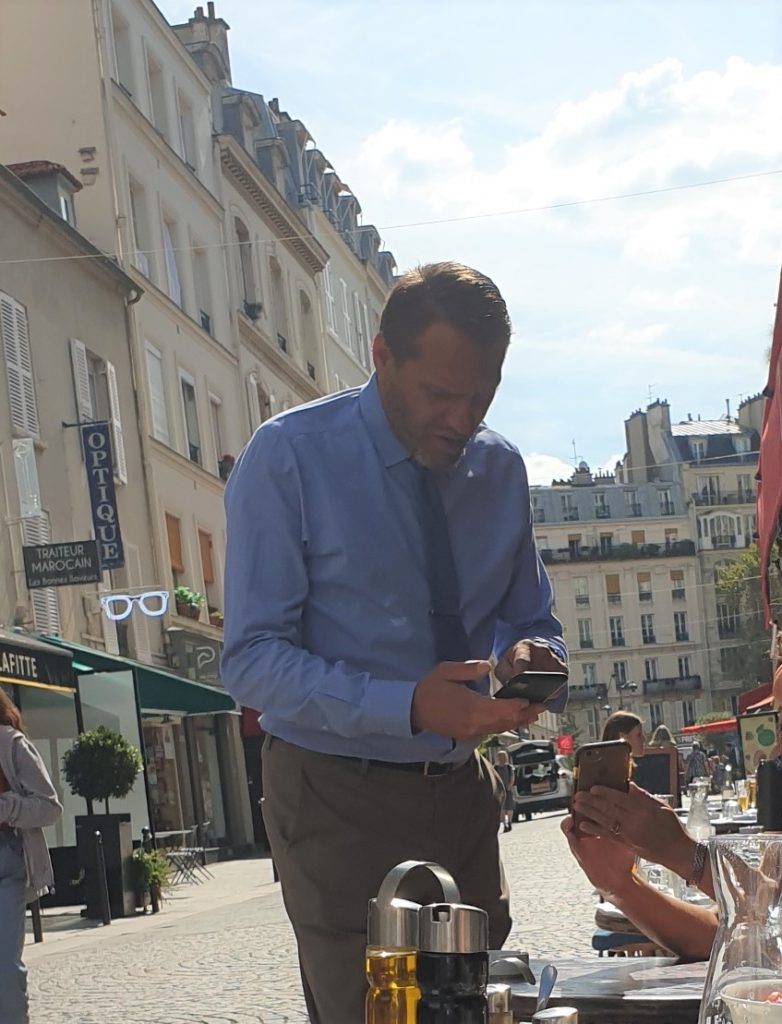
In other words, vaccinations weren’t made mandatory, but getting jabbed beat the alternative. The pace of shots jumped immediately after Macron’s announcement, even though the French were heading off for summer vacation. Since then, more than 14 million people in this country of 65 million have gotten a first shot. Macron also decreed that all health and care workers had to be vaccinated, something the government later enforced by suspending 3,000 unvaccinated health workers.
Opposition to the requirements, to the health pass and to Macron remains. But what I see is that protective measures have become a way of life. People have built masks, distancing and hand-sanitizing into their daily routines and are finding that it’s not that hard.
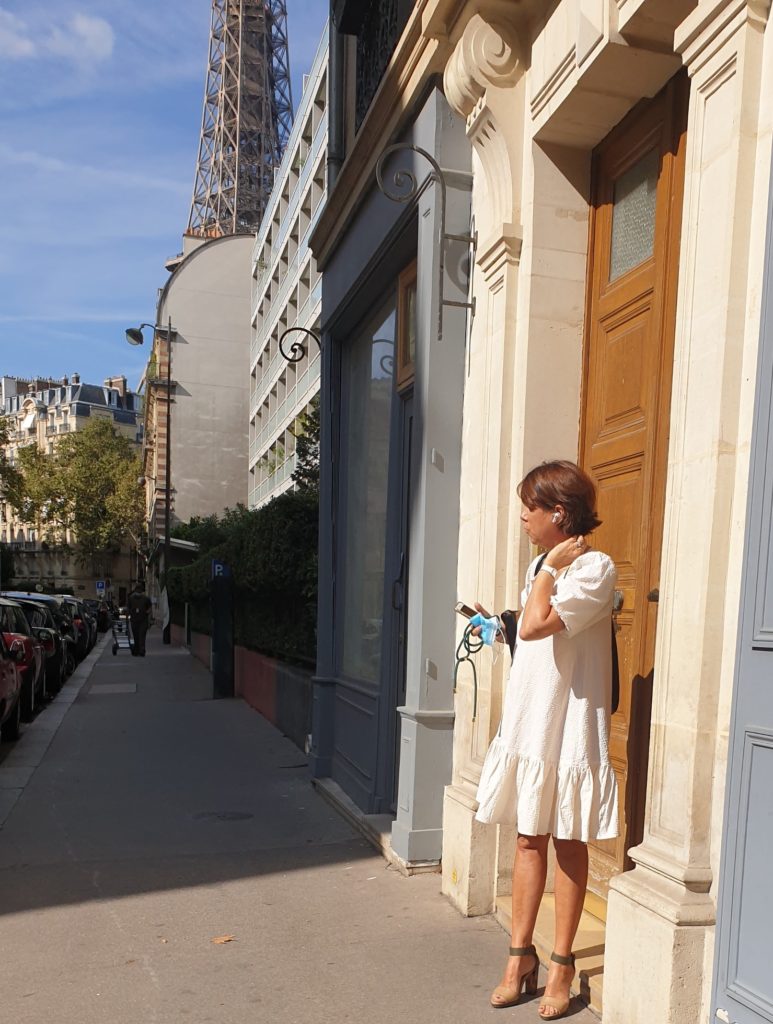
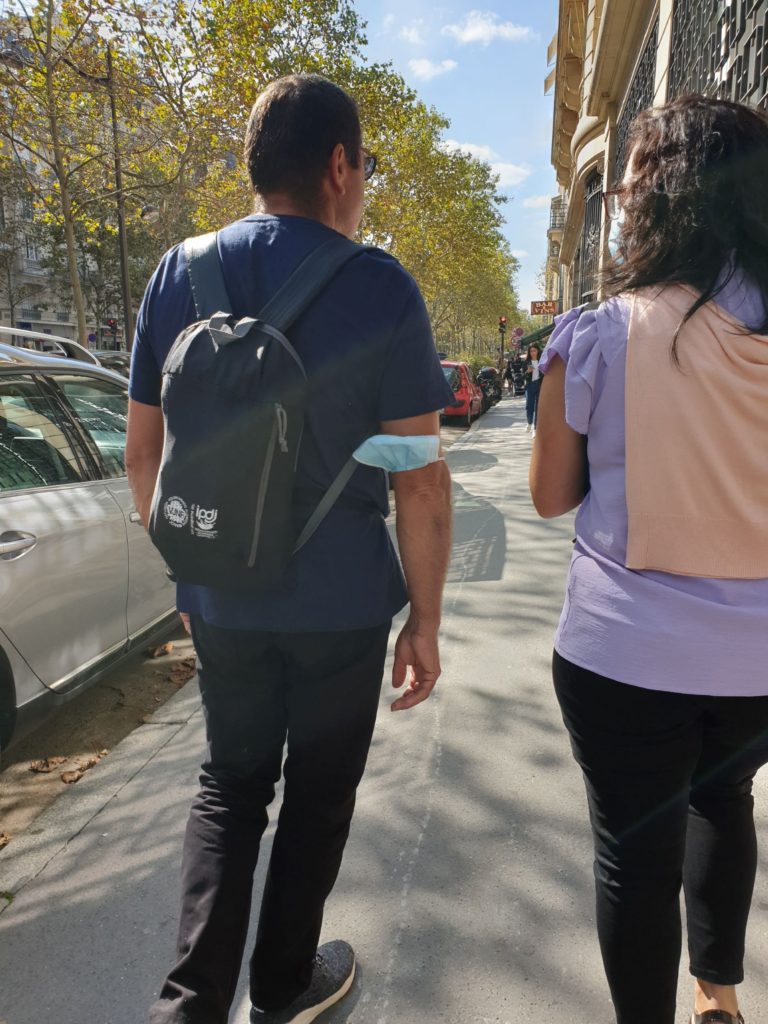
Masks aren’t required outdoors in Paris (they are in harder-hit areas), for instance, but everyone carries one and is ready to put it on.
You never see anyone on the Métro or the bus who’s not wearing a mask, regardless of how uncrowded it is.
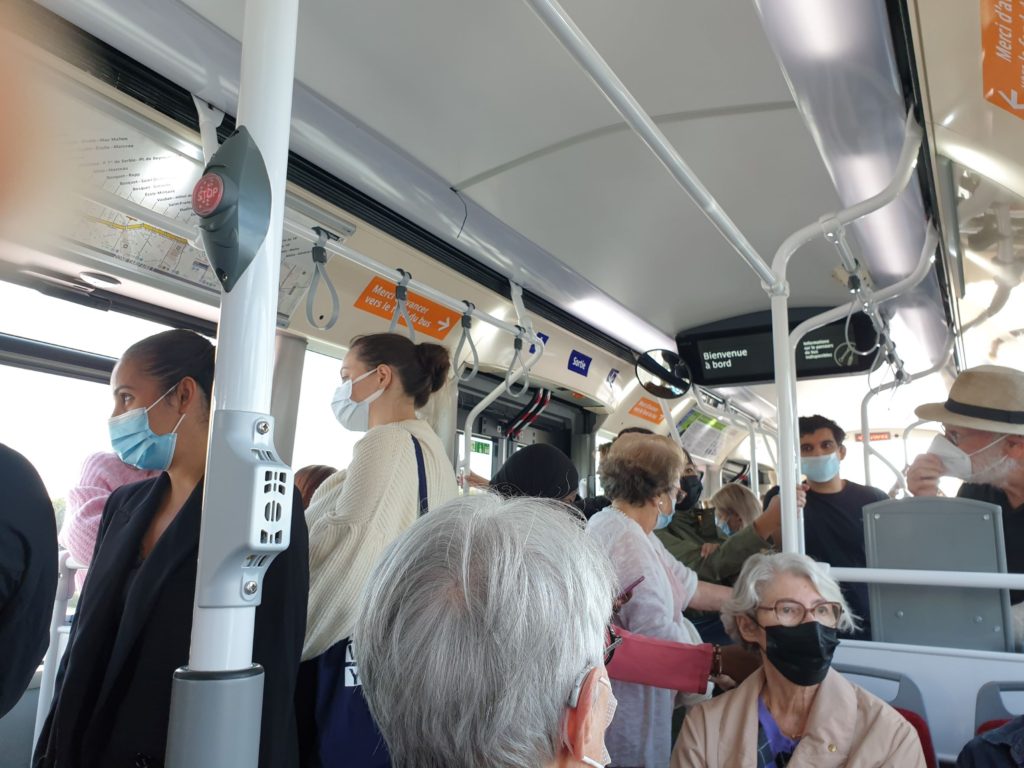
Vaccinations are free if you have a French health card, and they’re easy to get. This shopping mall was taking people on a no-appointment basis.
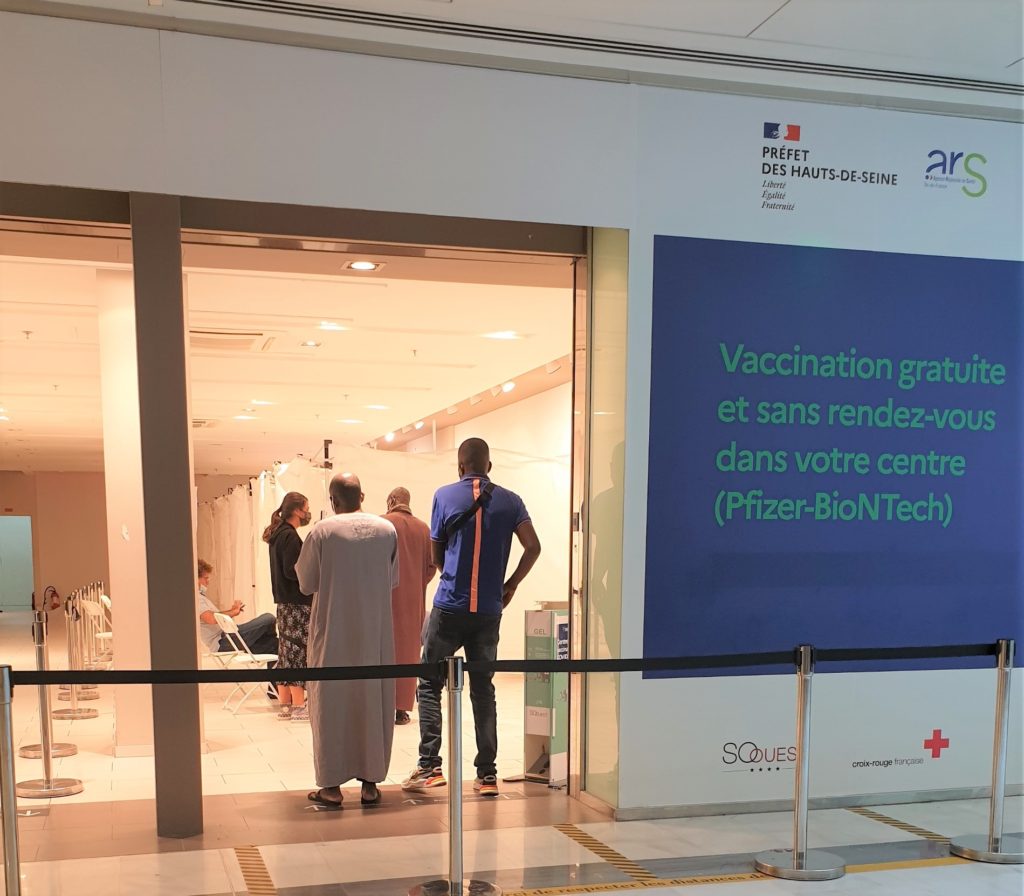
The same mall greets customers with a clear message on what’s required. That’s a mask vending machine on the left.
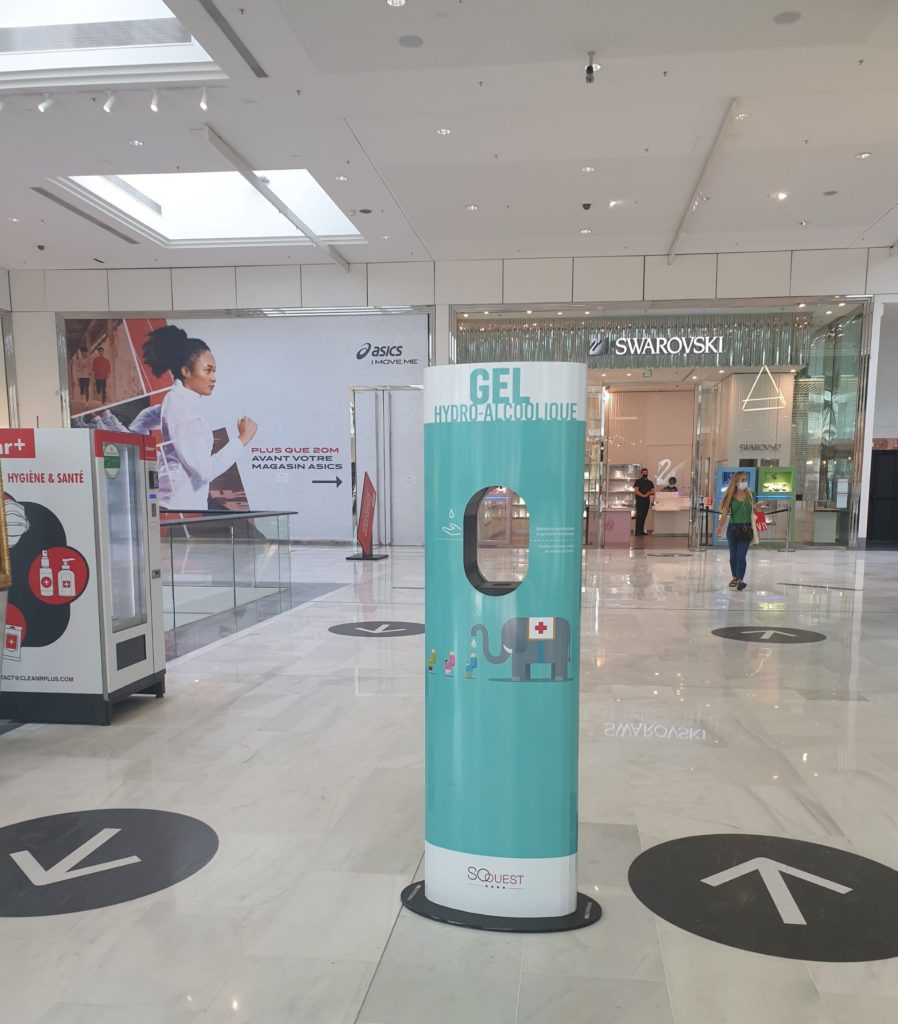
Distancing is imposed in all kinds of places.
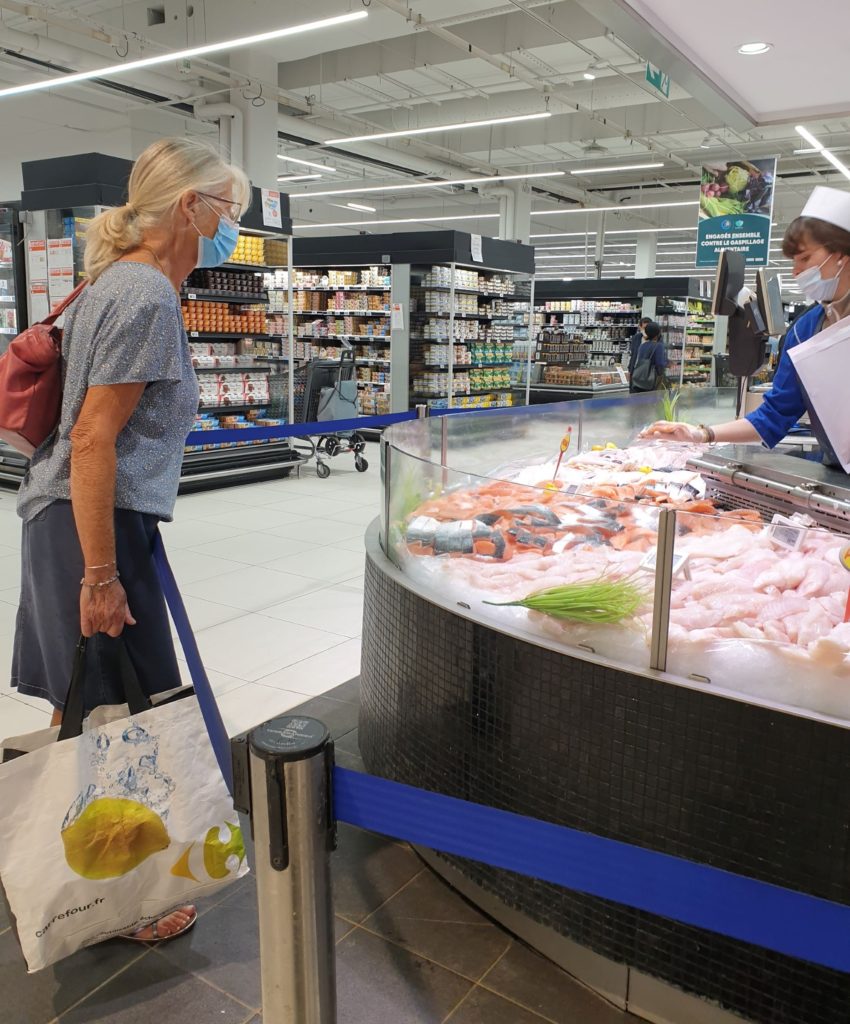
True, I’m making it sound easier than it is. People haven’t forgotten that the government early on did a poor job of testing and vaccinating. Parents are stressed by the start of school, where children aged 6 and up must wear masks, including at recess. Street protests against the health pass take place every Saturday, though their numbers, never large, are shrinking. The pace of vaccination is falling and the winter months lie ahead. Because France was later to vaccinate than the U.S., it may not have yet reached the point where vaccines start to lose their effectiveness, if indeed they do.
Nor has the success of France’s vaccine fight won Macron any popularity. Recent polls put him at about 38% support, a bit lower than at the same point in August. Seven months ahead of the presidential election, he is likely to make it to the second round of voting and would again face off against far-right leader Marine Le Pen.
Maybe that’s why the government is now talking about weakening the very rules that have given France such a lead in the COVID-19 fight. In an interview in Sunday’s Le Parisien newspaper, Health Minister Olivier Véran said there was reason to think the worst of the crisis was over. “If the situation continues to improve, we can start progressively lightening the restrictions,” he said.
It is perhaps telling that when the evening television news repeated Véran’s comments and then went to three people on the street for ordinary-folk reaction, those interviewed all expressed concern.
“I think it’s too soon,” one said. “The fight isn’t over yet.”
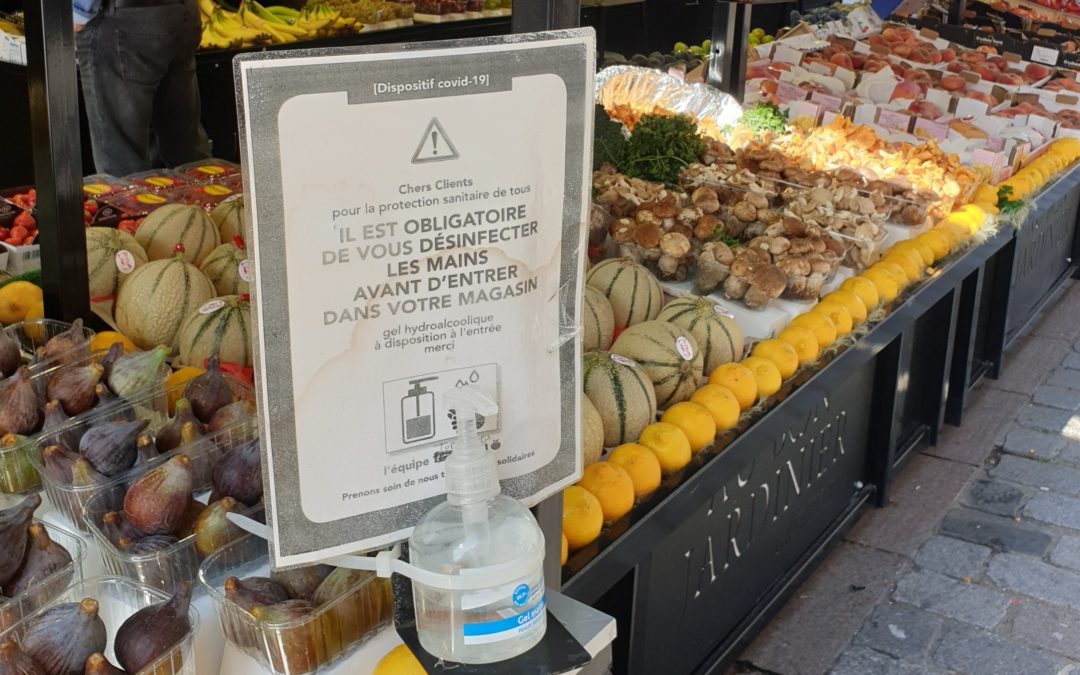
Informative and illuminating, as always. Thanks, Anne.
Thanks, Andy! I’m glad you liked it.
I agree that it’s too soon. As more travellers come from outside the country, we put ourselves at risk.